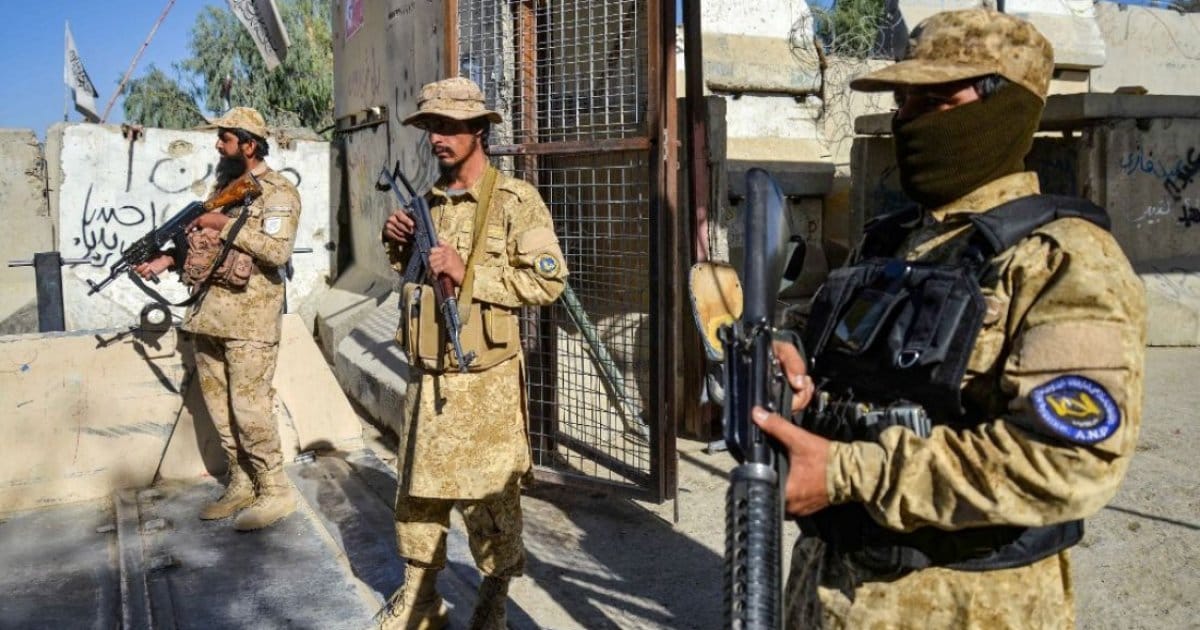Fierce fighting erupted between the Pakistani military and Afghan Taliban forces over the weekend, marking the deadliest conflict between the neighbors since the Taliban returned to power in Kabul in 2021.
Both Pakistani officials and the Taliban regime in Afghanistan claim to have inflicted heavy losses on the opposing side.
The Taliban said on Sunday they had killed 58 Pakistani soldiers in overnight border operations, but Pakistan’s army gave far lower casualty figures, saying 23 of its troops were killed. The Taliban also claimed to have captured 25 Pakistani army posts.
The Pakistani military, meanwhile, said it had killed more than 200 Afghan fighters, while the Taliban said only nine soldiers on its side were killed.
Claims from both sides could not be independently verified, as access to the border region remains heavily restricted.
Tensions between the two sides, who were once allies, escalated after Islamabad demanded Kabul take action against the Tehreek-e-Taliban Pakistan (TTP), a separate but closely linked group to the Afghan Taliban.
The TTP seeks to impose a hardline interpretation of Islam, particularly on Pakistan’s northwestern Khyber Pakhtunkhwa province, which borders Afghanistan.
Islamabad says the group operates from Afghan soil with impunity, but the Afghan Taliban deny the claim.
TTP militants have stepped up attacks against Pakistani security forces in recent years.
A UN report this year said the TTP “receive substantial logistical and operational support from the de facto authorities,” referring to the Taliban government in Kabul.
More than 500 people, including 311 troops and 73 policemen, have been killed in attacks between January and September 15 this year, the AFP news agency reported citing a Pakistan military spokesman.
Pakistan has also accused its archrival India of backing the Pakistani Taliban and other insurgent outfits in a bid to destabilize Pakistan. India denies such accusations and says Pakistan itself is involved in supporting secessionist militant groups operating in India-administered Kashmir.
Earlier last week, the Afghan Taliban accused Pakistan of bombing Kabul and a market in the country’s east.
Islamabad did not confirm or deny the air strikes. But Pakistan has repeatedly stressed the right to defend itself against what it said is a surging cross-border militancy.
The Afghan Taliban forces said they launched attacks on Pakistani troops late on Saturday as a “retaliation for air strikes carried out by the Pakistani army on Kabul.”
Michael Kugelman, a South Asia expert at the Washington-based Woodrow Wilson International Center for Scholars, told DW that the latest clashes between Pakistan and Afghanistan are “driven by Islamabad’s failure to curb Afghanistan-based anti-Pakistan terrorism.”
“Despite trying various strategies, including talks and limited military operations primarily within Pakistan, success has been elusive,” he said, adding the Pakistan’s “intensified counterterrorism operations” against targets in Afghanistan have now sparked a Taliban response, leading to the escalation.
While the fighting seems to have largely ended for now, the situation remains fragile and tensions run deep.
The clashes also prompted a halt in border trade between the neighbors as Pakistan closed crossings along their shared 2,600-kilometer (1,600-mile) frontier.
The move stranded scores of loaded goods vehicles on either side, a Pakistani industry representative told the Reuters news agency.
Afghan affairs expert Omar Samad, former ambassador of Afghanistan to Canada and a nonresident senior fellow at the Atlantic Council, warned that hostility between the two sides “can escalate into widespread violence and military action beyond what we are experiencing” and cause irreparable damage to the relationship between Islamabad and Kabul.
The expert also pointed out that the Afghan Taliban were not a match for the Pakistani military, despite being capable of staging operations at border posts.
“Thus, TTP reprisals, possibly encouraged by the Afghan Taliban, remain a major concern for Pakistan’s future,” he stressed.
Despite the rocky relationship between Islamabad and Kabul, both sides have made attempts over the past year to improve ties.
In May, Pakistan announced it would upgrade its diplomatic ties with the Afghan Taliban and designate an ambassador to Kabul, even though Islamabad has yet to formally recognize the Taliban government.
The neighboring nations also share close historical, cultural and people-to-people ties.
Millions of Afghans who fled their war-ravaged country over the past 40 years have found shelter in Pakistan.
But amid strained ties with the Afghan Taliban, Pakistan in 2023 started a massive initiative to repatriate approximately 4 million Afghans living in the country.
It has since deported over 800,000 Afghans, creating another source of tension with Kabul.



